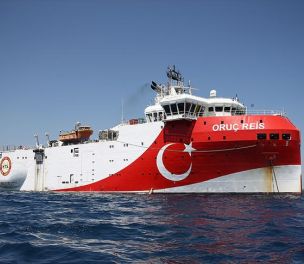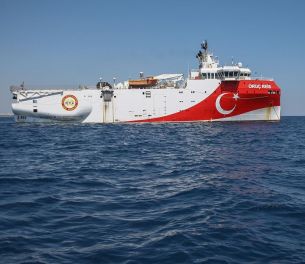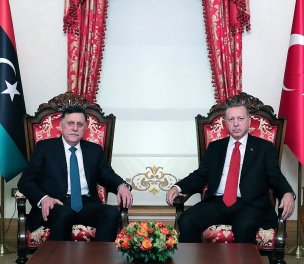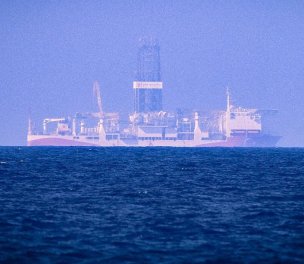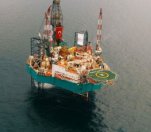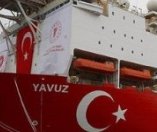Click to read the article in Turkish
The ministers of foreign affairs of European Union (EU) countries have adopted a framework for sanctions against Turkey over its drilling activities in the Eastern Mediterranean.
Releasing a statement, the Euroean Council has announced that "the Council adopted a framework for restrictive measure in response to Turkey's unauthorized drilling activities in the Eastern Mediterranean."
"The framework will make it possible to sanction individuals or entities responsible for or involved in unauthorised drilling activities of hydrocarbons in the Eastern Mediterranean", the Council has indicated further.
As announced by the Council, the sanctions to be imposed against Turkey "will consist of a travel ban to the EU and an asset freeze for persons, and an asset freeze for entities." EU persons and entities will also be forbidden from making funds available to the listed.
Sanctions foreseen for 3 groups of persons or entities
The Council has announced that "the framework for restrictive measures makes it possible to place under sanctions" the following three:
"1. persons or entities responsible for drilling activities related to hydrocarbon exploration and production not authorised by Cyprus within its territorial sea, exclusive economic zone (EEZ) or continental shelf. Such drilling activities include, where the EEZ or continental shelf has not been delimited in accordance with international law, activities which may jeopardize or hamper the reaching of such a delimitation agreement;
"2. persons or entities providing financial, technical or material support for the above mentioned drilling activities;
"3. persons or entities associated with them."
Mogherini: We will see when it will be realized or not
As reported by the state-run Anadolu Agency (AA), Federica Mogherini, the EU's foreign policy chief, made a brief statement after the Council meeting.
"The EU may identify persons and institutions to be included in the list of sanctions. We will see when it will be realized or not", said Mogherini.
On the other side, speaking to Reuters News Agency about the issue, two diplomats from the EU indicated that the staggered approach would give Turkey a chance to end what the EU says to be "illegal" drilling activities before any measures entered into force.
"If sanctions are imposed, the asset freezes and travel bans are likely to target the Turkish military and captains of the drilling ships", the diplomats told the news agency further.
Ministry: We will continue our activities
Shortly after the European Council announced the above framework, the Ministry of Foreign Affairs of Turkey has published a "Press Release Regarding the Conclusion Adopted by the EU Foreign Affairs Council".
The Ministry has stated the following in brief:
"We have repeatedly and strongly emphasized that in the Eastern Mediterranean, we will not cease to protect our rights stemming from international law and rights and interests of the Turkish Republic of Northern Cyprus, despite all of the unintelligible steps of the European Union.
"The decisions taken today at the European Union Foreign Affairs Council meeting clearly demonstrates that our messages following Council meetings of July 15 and October 14, 2019, have completely fallen on deaf ears.
"From 2004 until today, Turkey and TRNC have exerted benevolent efforts to turn the hydrocarbon resources in the Eastern Mediterranean into an element of stability rather than of tension, as the side having taken all the constructive and positive initiatives.
"We have consistently stated since 2004 that naturally, we will not allow the unilateral usurpation of our rights. EU's unrequited and incomprehensible support to a null and void administration disregarding international law, as well as the falling hostage of an important opportunity for cooperation in the Eastern Mediterranean should indeed serve as a case in point.
"It is a vain expectation for those who think that Turkey will bow to threats and back down on its rights in the Eastern Mediterranean. No one should doubt that we will continue our exploration and drilling activities in the Eastern Mediterranean." (EKN/SD)




.jpg)
